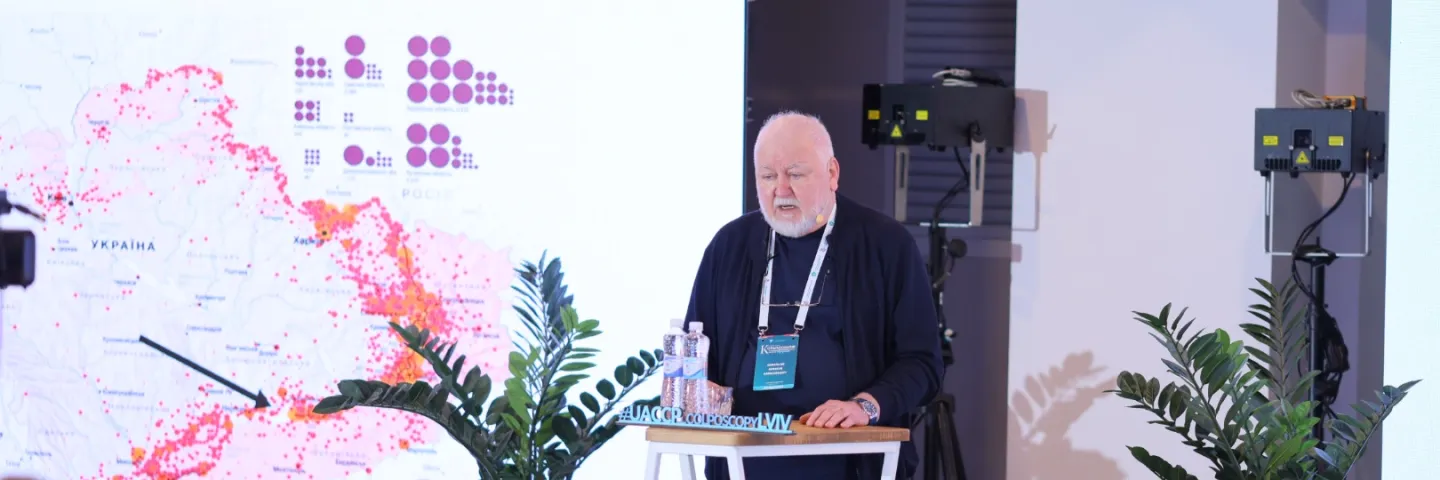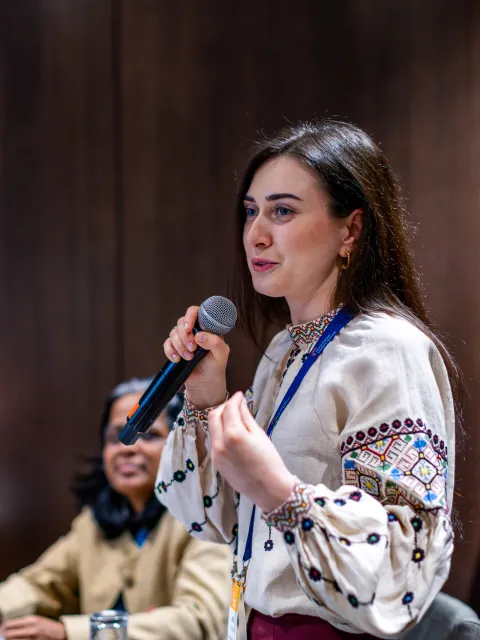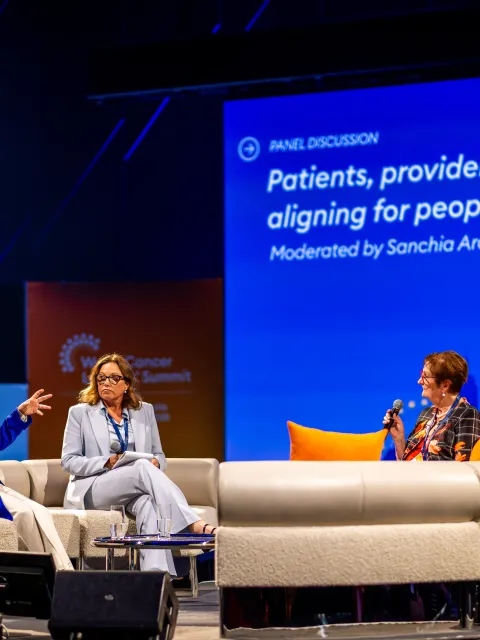Innovative project brings cervical cancer screening to war-affected women in Ukraine
A pioneering project in war-affected Ukraine supported by UICC and member organisations is helping restore access to life-saving cervical cancer screening for women displaced or cut off from regular health services, offering a model for other humanitarian crises.
HIGHLIGHTS
- A two-year project led by Zaporizhzhia State Medical University in Ukraine and Karolinska Institutet in Sweden is restoring cervical cancer screening access using HPV self-sampling kits in war-affected areas.
- The project reduces reliance on clinics by distributing kits directly to women and training local health workers, ensuring continuity of care despite infrastructure collapse.
- Its success demonstrates how decentralised, tech-enabled screening can be adapted for use in other humanitarian crises where traditional health services are disrupted.
- The project was supported through a grant from UICC, as part of the 'Reimagining Cancer Research in Europe Initiative' - a joint effort between UICC, IARC, and UICC member organisations.
Launched earlier this year, the two-year project ‘Human papillomavirus self-sampling for enhancing cervical screening during the war in Ukraine’ is one of three supported by UICC through the Reimagining Cancer Research in Europe Initiative. This initiative represents a joint effort between UICC, the International Agency for Research on Cancer (IARC), and UICC member organisations – the Dutch (KWF), Swedish (Cancerfonden), and Danish cancer societies, seeking collaboratively to strengthen cancer prevention through implementation research to help address the burden of cancer in the region.
This project on cervical cancer screening is led jointly by researchers at Zaporizhzhia State Medical University in Ukraine and Sweden’s Karolinska Institutet, offering a tailored solution to HPV testing despite disruptions caused by conflict.
“Self-sampling with subsequent HPV testing saves limited healthcare resources, motivates women, and makes screening accessible even in the frontline areas of a warring country. The experience of organising HPV screening using the self-sampling method in Ukraine in wartime will allow us to assess the possibility of using this model in other difficult and crisis situations around the world.”
– Prof. Olexiy Kovalyov, Head of the Department of Oncology at Zaporizhzhia State Medical and Pharmaceutical University, and Expert at the Ministry of Health of Ukraine
The human papillomavirus, or HPV, is responsible for 95% of cervical cancer cases, a disease that remains one of the leading causes of cancer deaths for women globally, yet can be prevented, and treated successfully if detected early. It is therefore essential that women continue to be screened despite the significant impact that war has on the delivery of health services.
As UICC has reported on several occasions, conflict and unrest cause logistical, financial, and security barriers to accessing care: collapse of infrastructure, disrupted supply chains for medical equipment and drugs, and the forced displacement of trained personnel. These conditions severely undermine access, continuity and quality of cancer care.
In Ukraine, where armed conflict continues to strain the health system, the HPV self-sampling project by the Karolinska Institutet and Zaporizhzhia State Medical University offers a rare example of how screening services can be adapted and sustained despite such pressures, by reducing reliance on facility-based screening.
In Zaporizhzhia – a city just 35 kilometres from the active war zone – the project is distributing self-sampling kits for testing to women aged 30 to 60. The team is also implementing quality assurance protocols, training local healthcare workers, and developing a centralised data platform to track participation and outcomes.
“There is an urgent need to adapt existing strategies and develop innovative approaches to address the health challenges these situations present. The use of self-sampling circumvents the need for frequent visits to healthcare facilities, making it particularly well-suited for regions where access to traditional screening methods may be limited or compromised.”
– Dr Sara Arroyo Mühr, Scientific Lead at the International Human Papillomavirus Reference Center and researcher at Karolinska Institutet
The project has drawn international recognition for its innovation under pressure. According to Prof. Kovalyov, the Ukrainian-developed HPV assay and the project’s digital platform were praised by clinicians and public health officials at a recent national conference on cervical cancer prevention in Lviv.
As it scales up, the project will also generate evidence on feasibility, cost, and user acceptability to inform future rollouts.
“Drawing upon Swedish success and expertise, we will measure key implementation outcomes such as acceptability, adoption, feasibility, cost and sustainability. In addition, a process evaluation will provide insights into the practicalities of implementing an HPV screening intervention in a conflict setting.”
– Dr Sara Arroyo Mühr
Last update
Wednesday 30 July 2025

